Health
92% of LGBTQ+ adults have received at least one dose for COVID-19
59% of LGBTQ+ respondents reported Covid-19 made them feel socially isolated, & 50% reported that it impacted their mental health.
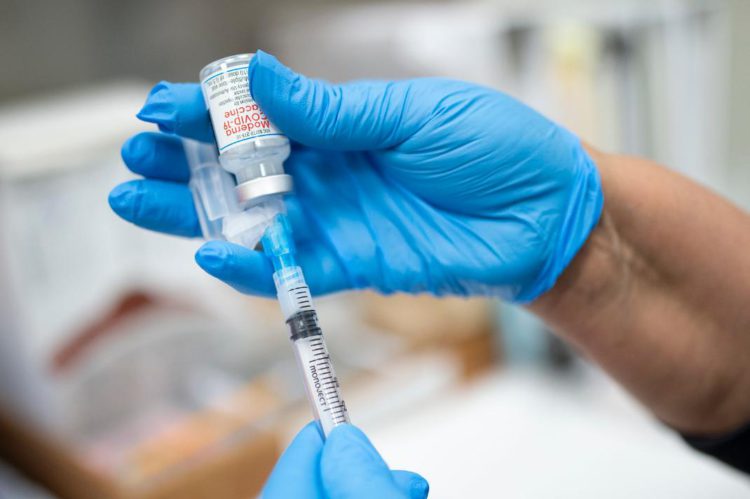
NEW YORK – A summary of data collected as part of the annual LGBTQ+ Community Survey by the Human Rights Campaign Foundation in partnership and supported by The Rockefeller Foundation in New York City, found that the vast majority – 92% – of LGBTQ+ adults surveyed in the United States had received at least one vaccination for Covid-19.
Although vaccination rates vary somewhat within the LGBTQ+ community, the rates across race and ethnicity, gender identity and sexual orientation, and age are well above the rates for various general adult populations where the data are available:
- By race and ethnicity, 90% of Latinx respondents, 85% of Black respondents, 96% of Asian or Pacific Islander respondents, and 85% of Native American/Alaskan and Middle Eastern/North African LGBTQ+ adults, among other race identities have received at least one dose of a Covid-19 vaccine.
- By gender identity and sexual orientation, 92% of cisgender lesbian and bi+ women, 93% of cisgender gay and bi+ men, and 92% of transgender and non-binary people have received at least one dose of a Covid-19 vaccine.
- By age, 91% of LGBTQ+ respondents aged 18-34, 92% of LGBTQ+ respondents aged 35-5, and 94% of LGBTQ+ respondents aged 55 and older have received at least one dose of a Covid-19 vaccine
While vaccination rates are high, Covid-19 took a toll on well-being among respondents. The survey finds that 59% of LGBTQ+ respondents reported that Covid-19 made them feel socially isolated, and 50% of respondents reported that it impacted their mental health.
“Increasing vaccination rates among communities of color is a major focus for us, and working with the Human Rights Campaign Foundation gives us the opportunity to better understand the impact of Covid-19 on LGBTQ communities of color. We look forward to continuing our support and outreach.” said Otis Rolley, Senior Vice President of Equity and Economic Opportunity at The Rockefeller Foundation.
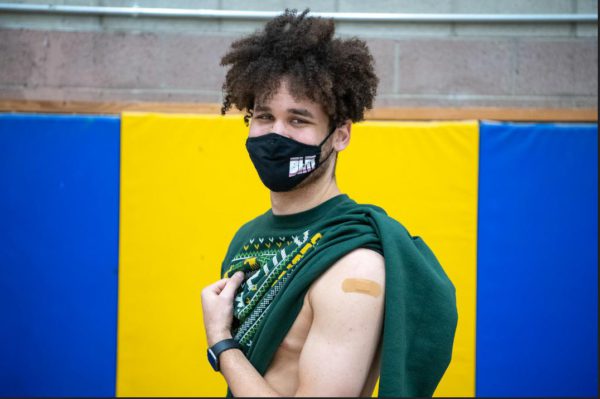
The data finds the Covid-19 pandemic led to social and financial loss, especially among LGBTQ+ people of color:
- 21% of LGBTQ+ adults surveyed reported that a close family member or friend has died from Covid-19
- LGBTQ+ people of color surveyed reported higher levels of loss due to Covid-19 compared to white LGBTQ+ people:
- 30% of Latinx LGBTQ+ respondents
- 28% of Black LGBTQ+ respondents
- 25% of Native American/Alaskan and Middle Eastern/North African LGBTQ+ respondents, among other race identities
- 18% of Asian/Pacific Islander LGBTQ+ respondents
- 17% of white LGBTQ+ respondents
- 36% of LGBTQ+ respondents reported that a close friend or family member has become very sick from Covid-19
- 24% of LGBTQ+ respondents reported that Covid-19 has negatively impacted their financial well-being
- LGBTQ+ people of color surveyed are more likely than white LGBTQ+ people to have experienced a negative financial impact during the pandemic:
- 33% of Native American/Alaskan and Middle Eastern/North African LGBTQ+ adults, among other race identities
- 26% of Asian/Pacific Islander LGBTQ+ adults
- 26% of Latinx LGBTQ+ adults
- 25% of Black LGBTQ+ adults
- 22% of white LGBTQ+ adults
“There are many reasons why LGBTQ+ vaccination rates may be higher than the general population, including higher percentages of the LGBTQ+ community being liberal, living in blue states, and living in urban areas,” said CMI Senior Director of Research, David Paisley. “While participants had strong education levels, those with no more than a high school diploma still had an 87% vaccination rate. We also see that Covid isolation significantly impacted LGBTQ+ people, which may have motivated quick vaccination to reenter the community.”
The new data build on the HRC Foundation’s previously released reports, including the most recent report, “Covid-19 and the LGBTQ Community: Vaccinations and the Economic Toll of the Pandemic,” which was released as a part of the HRC Foundation’s vaccine public education campaign: “For Ourselves, For Each Other: Getting to the Other Side of the Pandemic.” The HRC Foundation has also partnered with the Black Trans Advocacy Coalition on a resource, “Finding Financial Stability During Turbulent Times,” with steps and advice for those who may be struggling to make ends meet during these difficult times. Read more about the HRC Foundation’s efforts during Covid-19 here.
The Rockefeller Foundation is supporting the Human Rights Campaign Foundation on a number of Covid-19-related projects to support research and community education to reach LGBTQ communities of color during this crisis through The Rockefeller Foundation’s Equity-First Vaccination Initiative. Learn more here.
Health
UNAIDS to commemorate Zero Discrimination Day’s 10th anniversary
UN agency urges global action to protect human rights
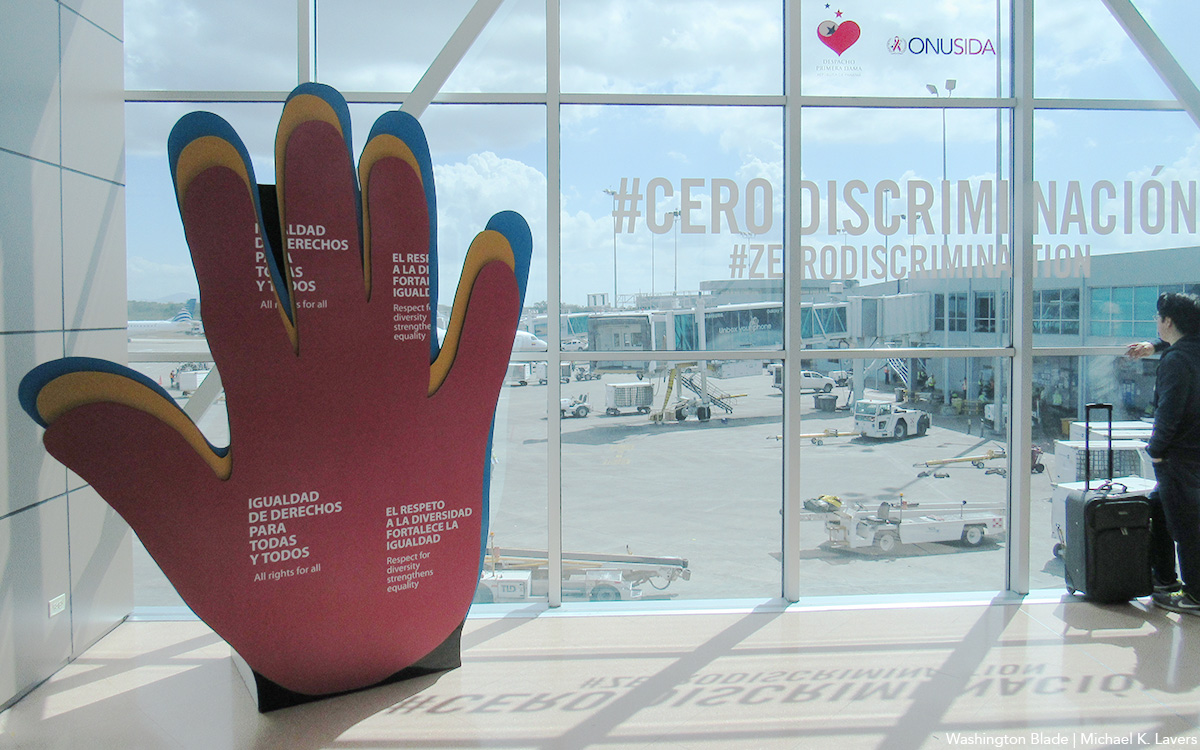
As the world marks the 10th anniversary of Zero Discrimination Day; UNAIDS is sounding the alarm on the increasing threats to human rights, calling for renewed efforts to protect the rights of all individuals as a fundamental step towards ensuring health for everyone.
Established by UNAIDS a decade ago, Zero Discrimination Day aims to promote equality and fairness regardless of gender, age, sexuality, ethnicity or HIV status. The progress achieved over the past years is now in jeopardy, however, due to rising attacks on the rights of women, LGBTQ people and other marginalized communities.
UNAIDS Executive Director Winnie Byanyima emphasized the critical link between protecting human rights and safeguarding public health.
“The attacks on rights are a threat to freedom and democracy and are harmful to health,” she said in a press release. “Stigma and discrimination obstruct HIV prevention, testing, treatment and care and hold back progress towards ending AIDS by 2030. It is only by protecting everyone’s rights that we can protect everyone’s health.”
Despite challenges, there has been notable progress.
At the onset of the AIDS pandemic more than 40 years ago, two-thirds of countries criminalized consensual same-sex sexual relations. They are now decriminalized in two-thirds of countries. An additional 38 countries around the world have pledged to end HIV-related stigma and discrimination, contributing to positive changes that include 50 million more girls attending school compared to 2015.
To sustain and enhance these advancements; UNAIDS urges global support for women’s rights movements, LGBTQ rights, racial justice, economic justice, climate justice and peace initiatives. By standing with communities advocating for their rights, the U.N. aims to reinforce the collective effort towards a more inclusive and equitable world.
Zero Discrimination Day is observed on March 1.
Events and activities that will take place around the world throughout the month will serve as reminders of the essential lesson and call to action: Protecting everyone’s health is synonymous with protecting everyone’s rights.
“Through upholding rights for all, we will be able to achieve the Sustainable Development Goals and secure a safer, fairer, kinder and happier world — for everyone,” said Byanyima.
Health
New CDC report finds transgender women at higher risk for HIV
More than 1,600 people in seven cities surveyed
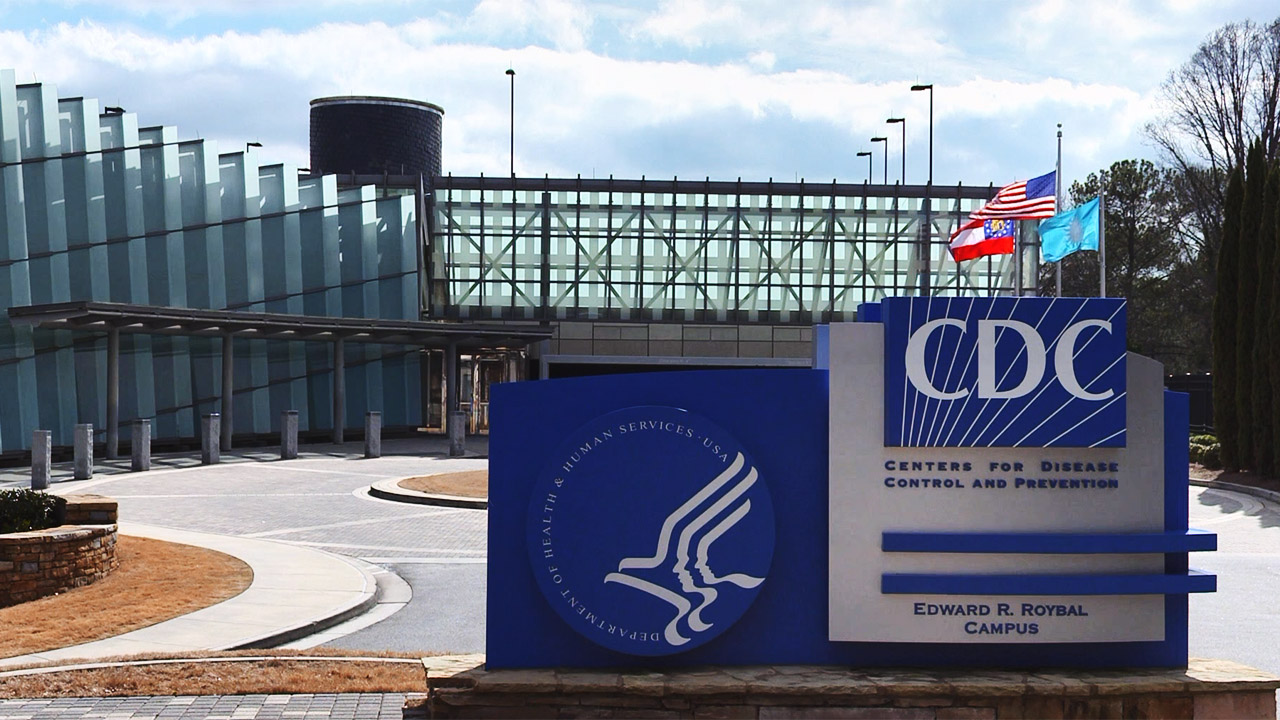
The Centers for Disease Control and Prevention issued a new study report this week that revealed that restricted by employment and housing discrimination and lack of access to needed gender-affirming healthcare for transgender women increasing the risk of contracting HIV.
Researchers reviewed data from a 2019-2020 survey, the National HIV Behavioral Surveillance Among Transgender Women, which found that the demographics of HIV/AIDS have been disproportionally high, especially among Black and Latina trans women, who had experienced employment and housing discrimination coupled with lack of access to gender-affirming healthcare.
The Jan. 25 Morbidity and Mortality Weekly Report was based on data studies of more than 1,600 trans women in seven major urban locales. Participants from Atlanta, Los Angeles, New Orleans, New York, Philadelphia, San Francisco and Seattle were chosen by referrals from people and community-based organizations who knew or were part of the local population of trans women.
The study’s researchers noted: “Employment discrimination occurs at the overlapping nexus of poverty, homelessness, incarceration, health insurance, disability, food insecurity and survival sex work. These issues are interconnected.”
The study stated that trans women’s inability to access quality healthcare, including gender-affirming treatment or access to PrEP, and can expose them to potential incarceration as many turn to “survival sex work” and violence, which increases the risk of contracting HIV.
The study’s author’s pointed out: “When economically marginalized transgender women are refused employment, this refusal cyclically contributes to economic hardships. This analysis …demonstrates the importance of transgender women working and living with dignity and without fear of unfair treatment.”
Health
A Whole New Perspective on Well-Being
The Mather’s team recognizes that everyone’s wellness journey is completely unique to their life experiences and influences.
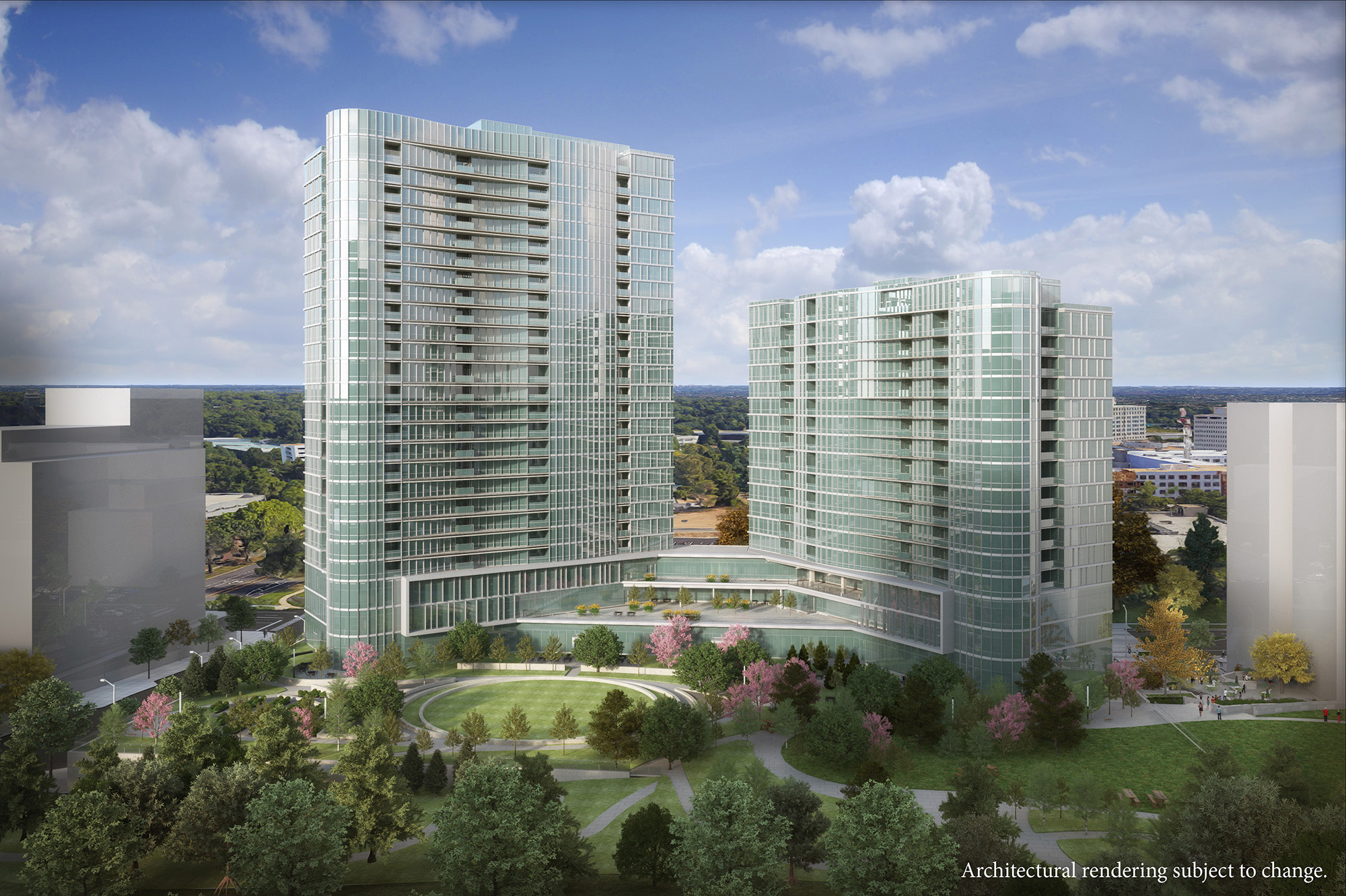
It’s easy to spot the distinctive, elegant silhouette of The Mather, a Life Plan Community for those 62+ opening this spring in Tysons, Virginia. What is not apparent to the naked eye is The Mather’s unique wellness philosophy, which is literally built into the community.
The Mather’s team recognizes that everyone’s wellness journey is completely unique to their life experiences and influences.
Nature is one of the important factors that contribute to well-being. So The Mather is incorporating biophilic design—a design approach to facilitate access to nature or things that replicate natural patterns. This can include interior spaces with sightlines to a garden, choosing natural wood and stone as interior materials, or incorporating fragrant flowers and plants indoors to spark memories and provide tactile opportunities such as gardening.
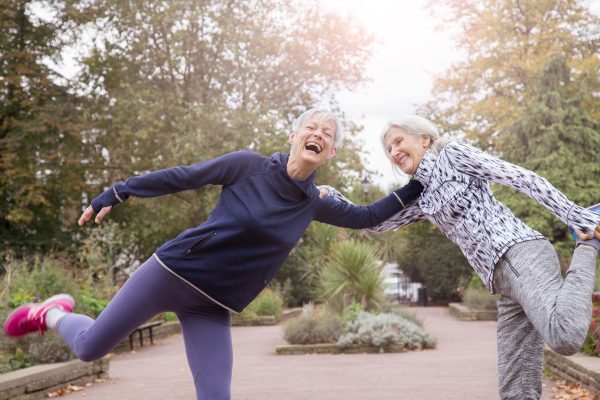
“Providing biophilic design within interior settings connects residents to the natural world,” says Mary Leary, CEO and President of Mather, the organization behind The Mather. “Research shows that a connection to nature provides positive benefits to mental states and overall well-being. At The Mather, biophilic design is the intersection of buildings and programs with nature in an urban setting.”
“The Mather is attracting a diverse group of older adults,” says Mary. “As a result, we aim to incorporate wellness practices from around the world, including Wyda movement theory of the Celtic Druids, which helps people achieve harmony with nature and contentment through mindfulness.” This holistic regenerative approach is similar to Qi Gong and yoga, while born in a different part of the world. Mather Institute has a special focus on mindfulness to support older adults’ practice of present moment awareness, which can lead to increased overall well-being, compassion, and joy.
A very different example of a wellness offering at The Mather is the Gharieni Welnamis spa wave bed, which uses computer-controlled vibrational therapy and audio frequencies to train the brain to relax. “The bed increases mindfulness, concentration, and creativity—all of which support our mission of creating Ways to Age Well,SM” says Mary.
These and other personalized ways to wellness will ensure that residents of The Mather can choose from seemingly countless ways to focus on their well-being. In other words, the sky’s the limit!
-

 State Department4 days ago
State Department4 days agoState Department releases annual human rights report
-

 District of Columbia2 days ago
District of Columbia2 days agoCatching up with the asexuals and aromantics of D.C.
-

 South America2 days ago
South America2 days agoArgentina government dismisses transgender public sector employees
-

 Politics5 days ago
Politics5 days agoSmithsonian staff concerned about future of LGBTQ programming amid GOP scrutiny











